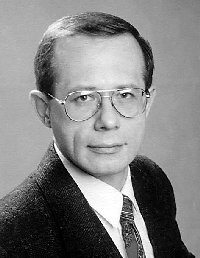Ukraine and USA: Small States Gain Weight

Serhiy TOLSTOV, Director of the Institute for Political Analysis and International Research:
Notably, the statement of reducing tensions in the Ukrainian — American relations came from Stephen Pifer, who has been responsible for shaping US foreign policy in this region for the past half a year. This statement came after the impasse was broken on the intergovernmental level and the Ukrainian delegation was invited to the European Conference in Athens. However, the Kolchuga affair rhetoric lingered even after the Ukrainian side dropped a number of curtseys, offering to deploy troops trained to deal with chemical and biological weapons, say, in Kuwait, should a corresponding UN resolution be adopted, or as part of bilateral agreements with the US.
The US understood that pressing on with the Kolchuga affair had no prospects. The more so that such a policy did not meet with broad support from other Western states, since an attempt to organize an international blockade of the Ukrainian powers that be failed. In making this decision, Washington was also influenced by the formation of the Berlin-Paris axis, an international strategy that became an alternative to that of the US. After Moscow actually joined this axis, stands taken by small and middle-sized European states, in part, the one taken by Ukraine, gained even more weight than before.
At this point, however, Ukrainian — American relations are quite shaky. The agreement to reestablish three of the four committees of the so-called Kuchma — Gore Commission can be considered a major breakthrough in the relations between Kyiv and Washington. The US line in relations with Ukraine will take definitive shape against the backdrop of the development of the international situation and will also depend on how much importance Washington will attach to Kyiv. Thus far the US reserves the right to resume the campaign against the Ukrainian president. Should Ukraine manage to stabilize the domestic political situation, develop its relations with the EU, and avoid being involved in crisis situations around the US, the trend toward reconciliatory rhetoric may continue well into the presidential elections of 2004.
Выпуск газеты №:
№7, (2003)Section
Day After Day





